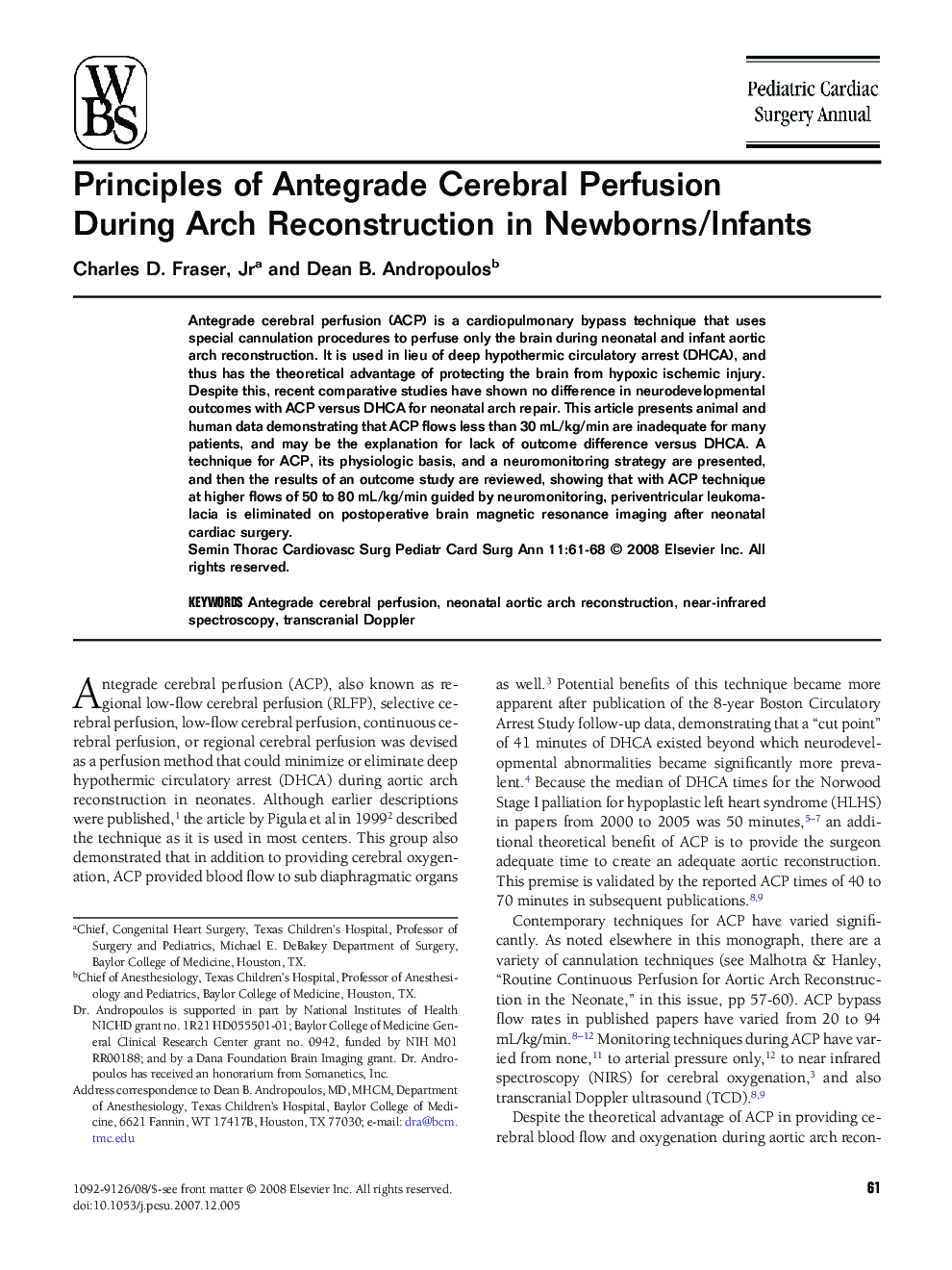| Article ID | Journal | Published Year | Pages | File Type |
|---|---|---|---|---|
| 3025918 | Seminars in Thoracic and Cardiovascular Surgery: Pediatric Cardiac Surgery Annual | 2008 | 8 Pages |
Abstract
Antegrade cerebral perfusion (ACP) is a cardiopulmonary bypass technique that uses special cannulation procedures to perfuse only the brain during neonatal and infant aortic arch reconstruction. It is used in lieu of deep hypothermic circulatory arrest (DHCA), and thus has the theoretical advantage of protecting the brain from hypoxic ischemic injury. Despite this, recent comparative studies have shown no difference in neurodevelopmental outcomes with ACP versus DHCA for neonatal arch repair. This article presents animal and human data demonstrating that ACP flows less than 30 mL/kg/min are inadequate for many patients, and may be the explanation for lack of outcome difference versus DHCA. A technique for ACP, its physiologic basis, and a neuromonitoring strategy are presented, and then the results of an outcome study are reviewed, showing that with ACP technique at higher flows of 50 to 80 mL/kg/min guided by neuromonitoring, periventricular leukomalacia is eliminated on postoperative brain magnetic resonance imaging after neonatal cardiac surgery.
Related Topics
Health Sciences
Medicine and Dentistry
Cardiology and Cardiovascular Medicine
Authors
Charles D. Jr, Dean B. Andropoulos,
